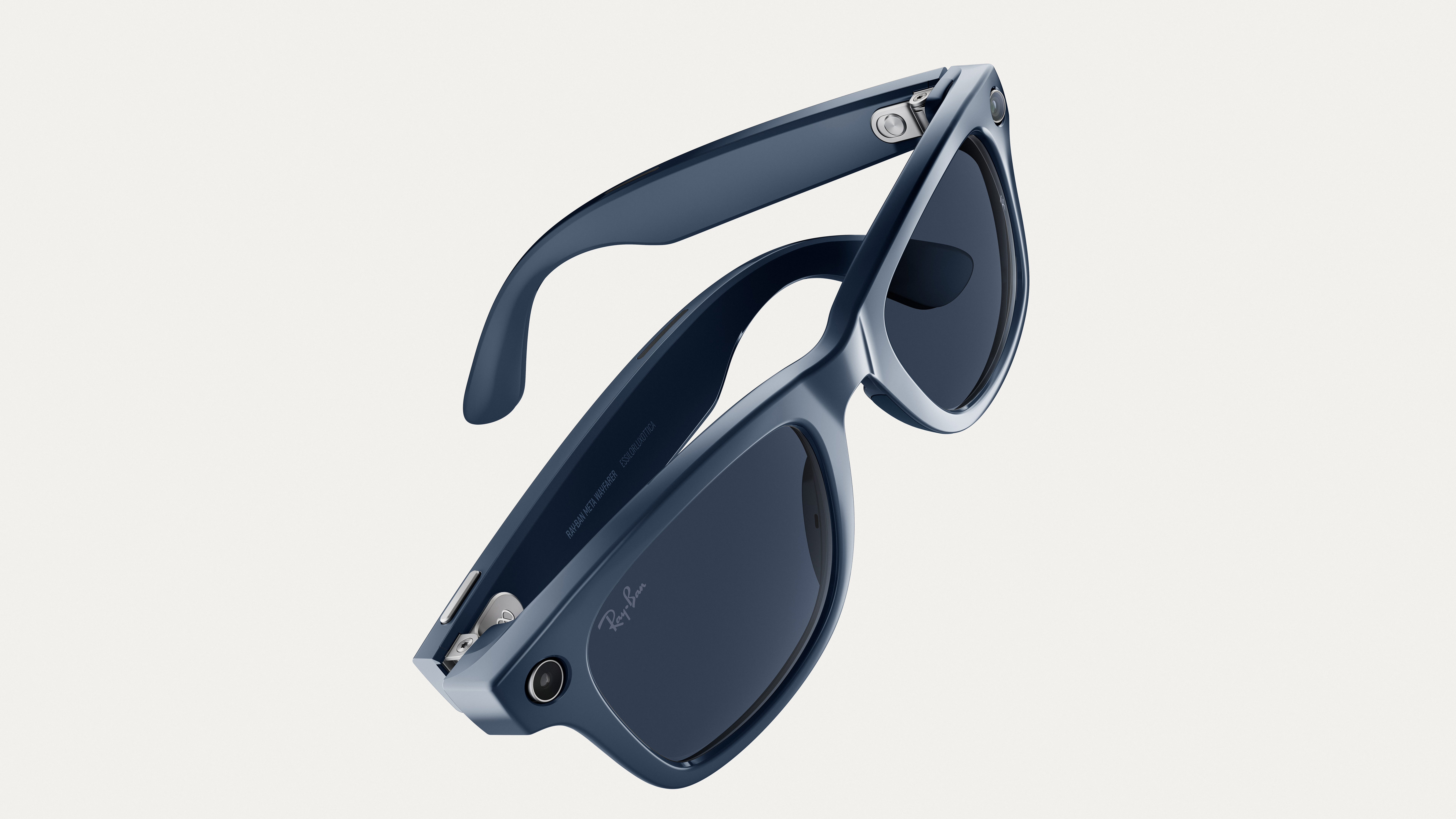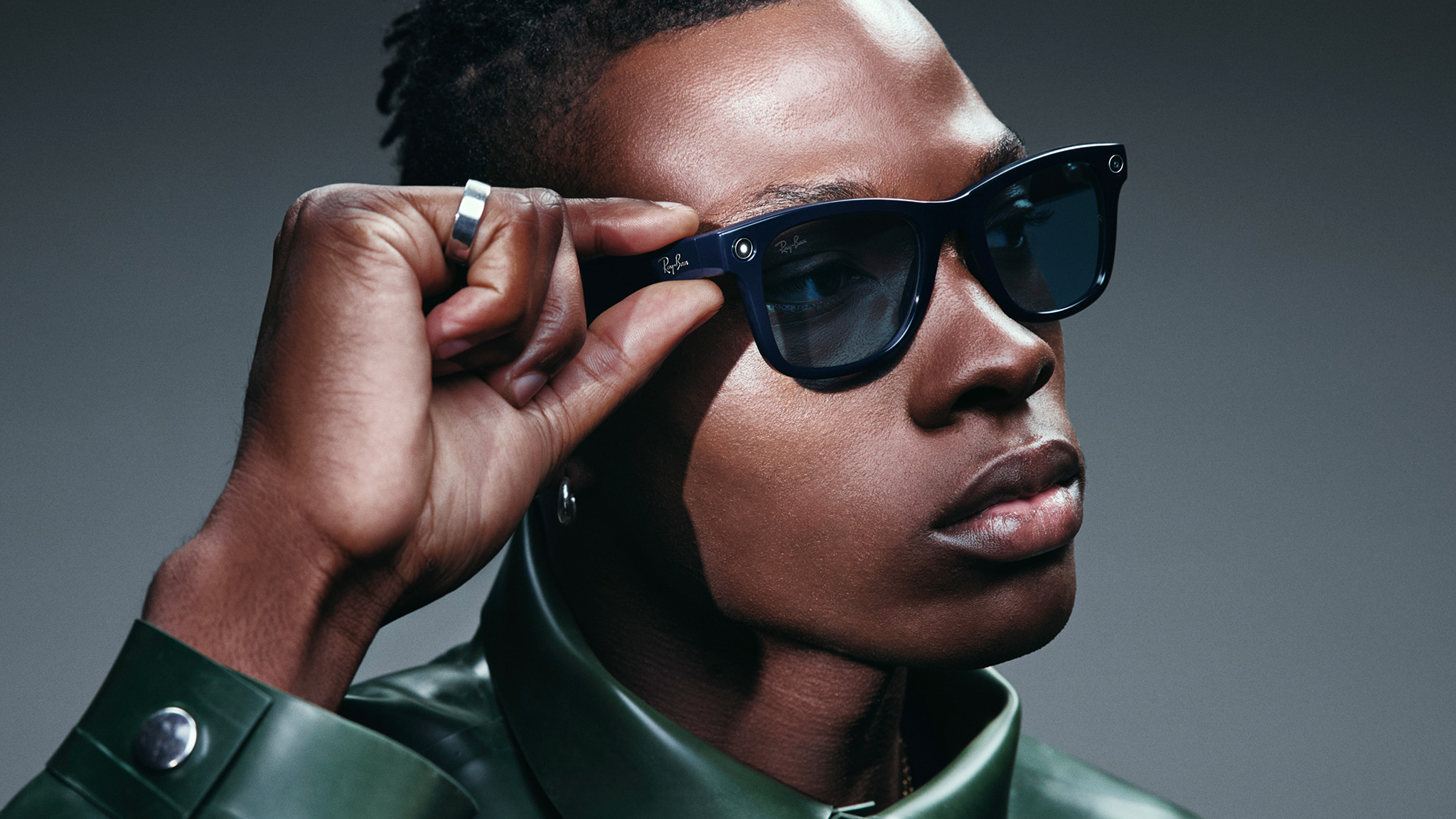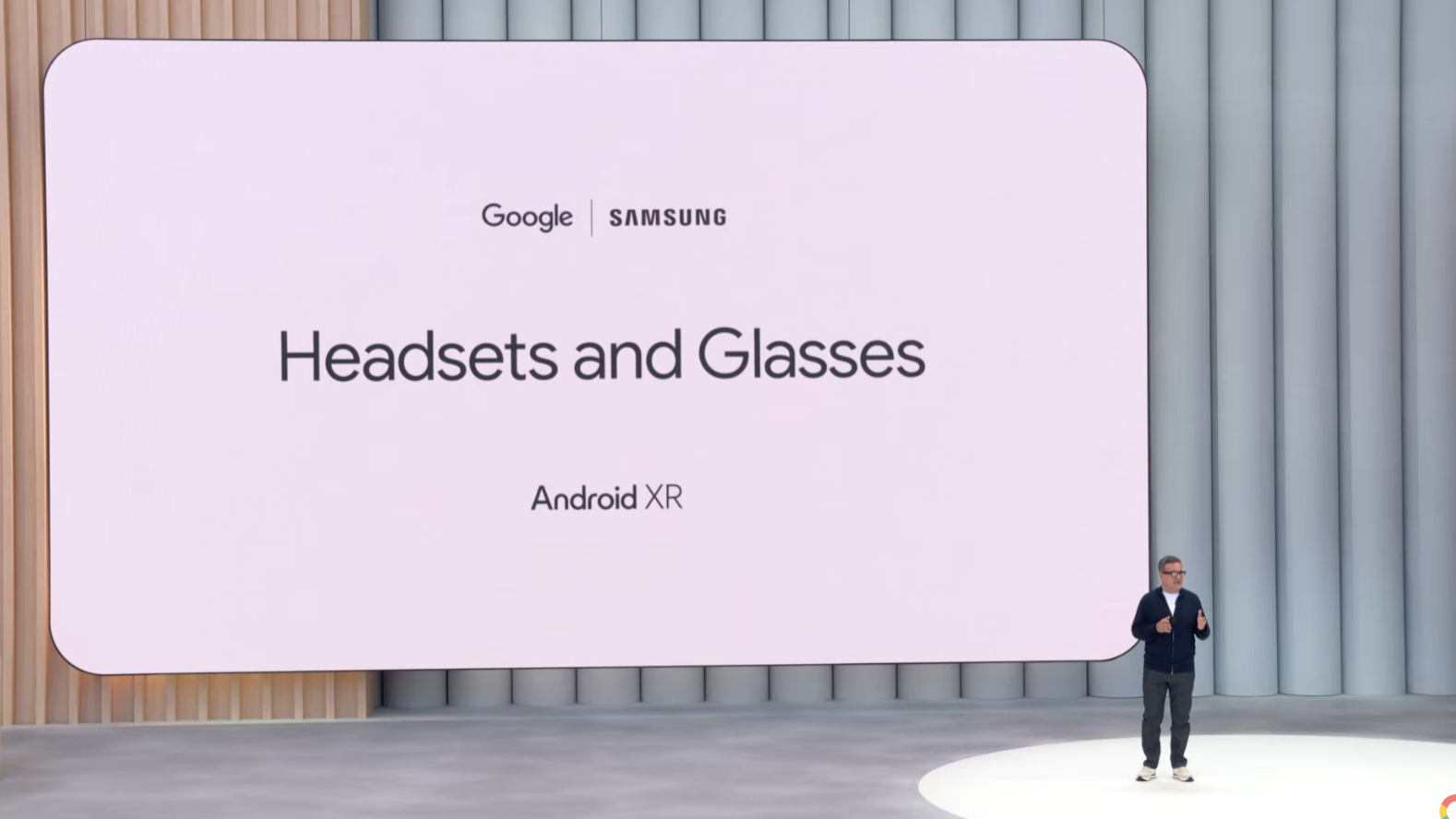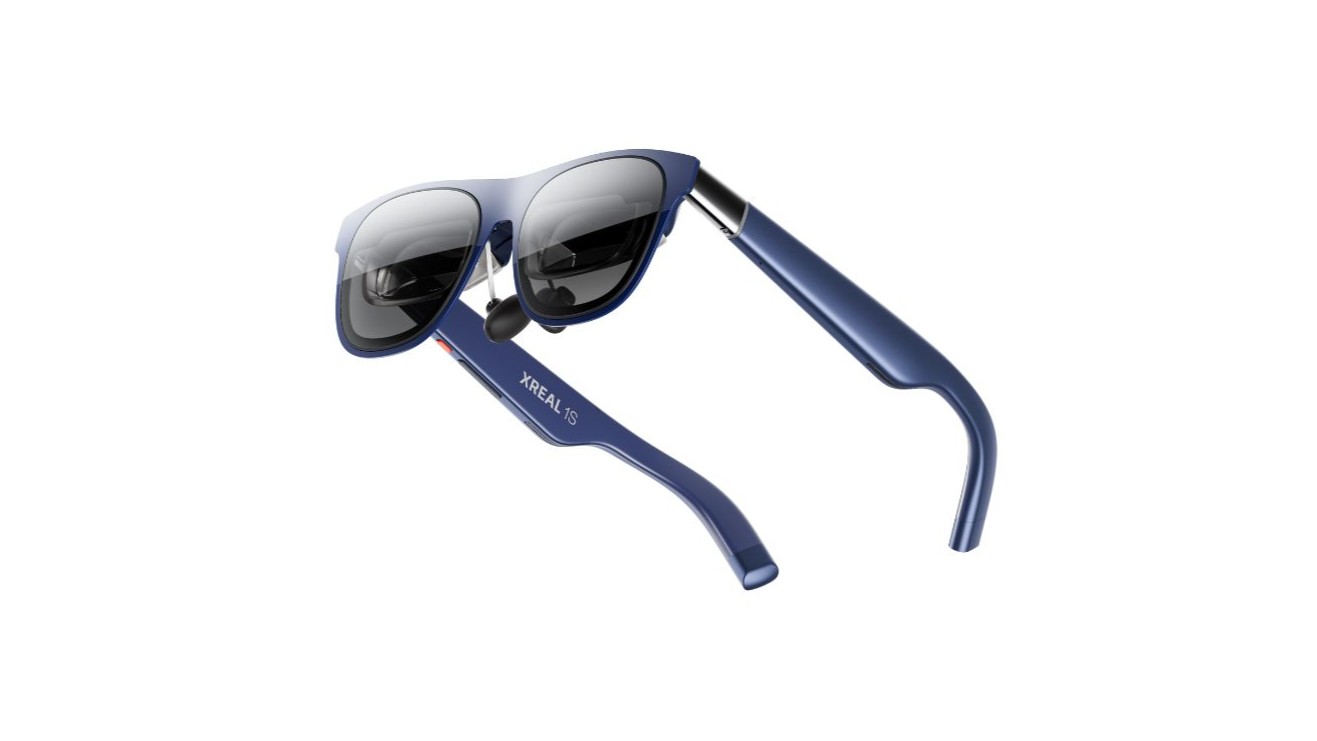Meta's Gen 2 AI smart glasses set the stage for Samsung and Google's challenge
I'm excited for Meta's new glasses, but Google and Samsung's Android XR glasses can't come soon enough.

Enjoy our content? Make sure to set Android Central as a preferred source in Google Search, and find out why you should so that you can stay up-to-date on the latest news, reviews, features, and more.

Android Central's Editor's Desk is a weekly column discussing the latest news, trends, and happenings in the Android and mobile tech space.
Meta recently unveiled its second-gen AI smart glasses, bringing some pretty notable upgrades while maintaining the same stylish design. And while I haven't jumped on the smart glasses train just yet, the new offerings from Meta have me really excited about this growing category.
Meanwhile, Samsung is rumored to have its own AI glasses in the works, which could launch as soon as October alongside the more powerful Project Moohan XR headset. These have a lot of potential, especially as the first real competitors to the Ray-Ban Meta (Gen 2). However, with the latest generation being Meta's third attempt at smart glasses, Samsung and Google will have to play catch-up on both hardware and software to make up for lost time.
All the right upgrades

It's only been the last few years that smart glasses started taking off, and that's largely thanks to Meta. In 2021, it seemed a little strange that Meta was diving into this unproven market, but the popularity of the last-gen Ray-Ban Meta Smart Glasses proved that this is a winning category for the company.
Admittedly, Meta's last-gen model was the first time I was even remotely interested in smart glasses. I was impressed with how they're able to identify what was in front of me while looking like something anyone could wear, unlike the early attempts of Google Glass.
Unfortunately, there were some downsides to the glasses, with the main thing being battery life. This was admittedly the biggest reason why I hadn't pulled the trigger on buying them, but Gen 2 fortunately appears to have addressed this.

The Ray-Ban Meta (Gen 2) is estimated to last up to eight hours on a single charge with mixed use. This feels perfectly sufficient for something like these, which I likely won't be using constantly aside from the occasional question, listening to music, and taking a photo or video here and there.
Meta also upped the video capture capabilities to a 3K resolution. As someone who loves to capture videos to post on my Instagram stories or Reels, this is a great upgrade. I'll likely stick to 1080p, because frankly, I don't think anything beyond that is necessary for social media, but having the option is nice.
Get the latest news from Android Central, your trusted companion in the world of Android
Samsung's smart glasses could be just as compelling

We've heard and seen a lot regarding Samsung's Project Moohan and Google's Android XR ambitions, but we haven't heard as much about Samsung's rumored Ray-Ban Meta competitors. It has been reported that the glasses, dubbed Project Haean, could launch with the aptly named "Samsung Galaxy Glasses" moniker and would be audio-only, featuring a camera and quick access to AI assistants.
This already sounds quite compelling to me, as Samsung has put much of its focus lately on Gemini, which is becoming a staple in my life. Gemini's more natural conversational skills, as well as features like Gemini Live, which can easily identify what it sees and even remember things for you, would fit extremely well on a pair of smart glasses.

This could also give the Ray-Ban Meta (Gen 2) a run for its money, as Samsung and Google have the ecosystem to back up Gemini's capabilities. On the one hand, Meta's services have become fairly ubiquitous, with apps like Facebook, Instagram, and WhatsApp installed on hundreds of millions of smartphones, not to mention Meta AI injected into these apps (whether we like it or not). This, along with the growing popularity of Meta's glasses, gives it a good amount of mindshare among consumers.
On the other hand, Google and Samsung have been pushing Gemini's capabilities on their phones and other devices. Look at any Pixel 10 commercial and you'll see how the focus is less on the phone and more on what Gemini can do for you in your everyday life. This type of marketing is admittedly quite effective, and I imagine this would translate extremely well with Android XR glasses.
There's also the fact that these glasses would likely have a deeper connection with Android phones than Meta's do, which is another differentiating factor that could play in Samsung's favor. Imagine getting real-time Maps directions, creating new events in Calendar, or translating a conversation with Google Translate, all without taking out your phone.
Hands-free access to your favorite Google apps could be a huge draw over Meta.
Another Galaxy Ring situation?

If Samsung wants its "Galaxy Glasses" to succeed, it's going to have to do more than rely on its name to generate sales. We're seeing Samsung dive into new product categories lately with devices like the Galaxy Ring, and while it was a valiant effort to supplant a growing market, it's still an expensive product that feels a bit like an also-ran to the Oura Ring.
Samsung will have to create a rather compelling case for why people should buy smart glasses and why they should choose it over Meta. For that to happen, Samsung will have to get three things right:
- Design: They can't look like smart glasses if they expect people to wear them. They should also have multiple styles/colors.
- Battery life: Samsung hasn't always excelled in this spec, and it will have to really squeeze as much battery as it can to make them useful.
- Price: If they're too expensive, Samsung might as well throw in the towel to Meta.
Availability is also a concern. Rumors point to a reveal of the Galaxy Glasses in October, while some indications point to a 2026 launch, which could mean even more time for Meta's glasses to hold the spotlight.
On the plus side, Google's work on Gemini has put it in a good place for integrating into smart glasses, meaning the glasses should be plenty capable. If Samsung can nail everything else above, it could properly challenge Meta's growing lineup of AI glasses and push the market further into the mainstream.

Derrek is the managing editor of Android Central, helping to guide the site's editorial content and direction to reach and resonate with readers, old and new, who are just as passionate about tech as we are. He's been obsessed with mobile technology since he was 12, when he discovered the Nokia N90, and his love of flip phones and new form factors continues to this day. As a fitness enthusiast, he has always been curious about the intersection of tech and fitness. When he's not working, he's probably working out.
You must confirm your public display name before commenting
Please logout and then login again, you will then be prompted to enter your display name.

